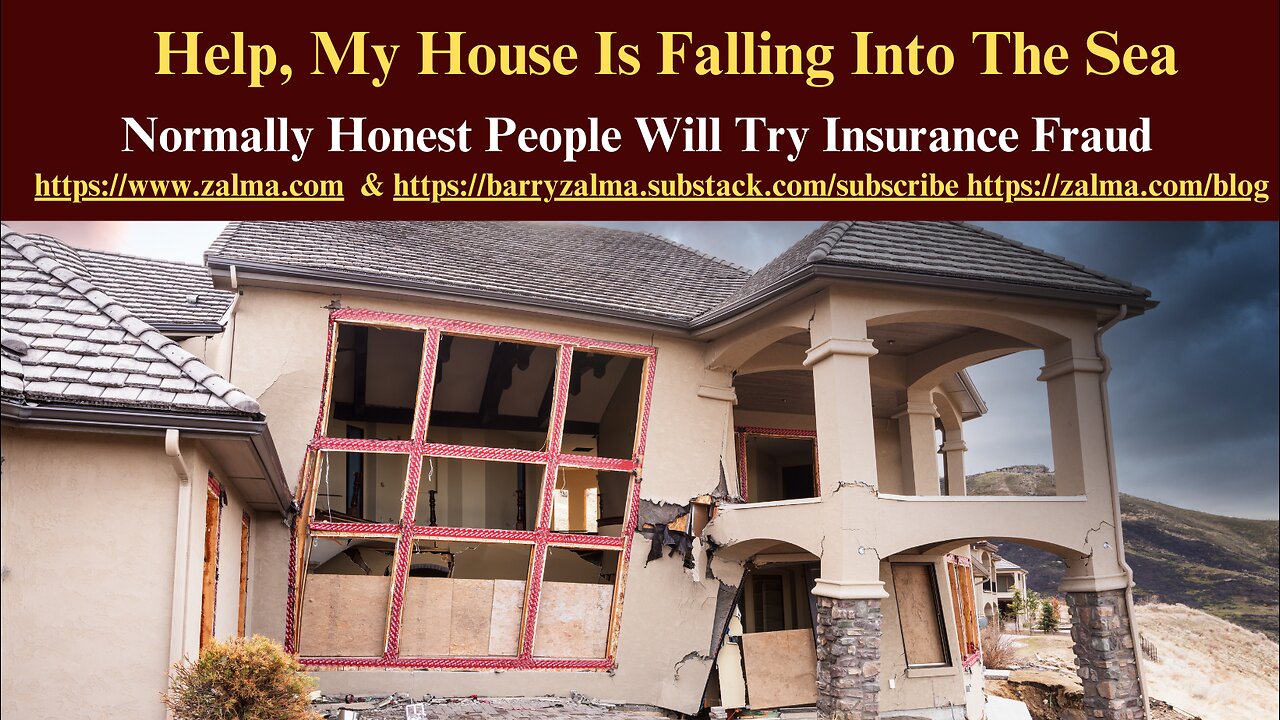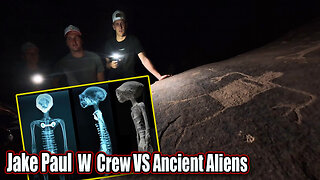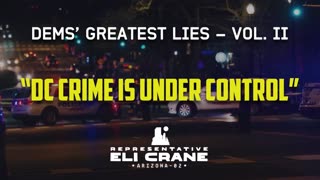Premium Only Content

Help, My House Is Falling Into The Sea
Normally Honest People Will Try Insurance Fraud
I present blogs and videos so you can learn how insurance fraud is perpetrated and what is necessary to deter or defeat insurance fraud. This Video Blog of True Crime Stories of Insurance Fraud, with the names and places changed to protect the guilty, are all based upon investigations conducted by me and fictionalized to create a learning environment for claims personnel, SIU investigators, insurers, police, and lawyers to better understand insurance fraud and weapons that can be used to deter or defeat a fraudulent insurance claim.
Post 4793
See the full video at and at https://youtu.be/ZFSXlqgdcQA
The Honest Real Estate Lawyer Tempted to Commit Fraud
Career criminals are not the only people who perpetrate insurance fraud. The temptation has become so great that almost anyone who is given the opportunity, will try. Those who do not premeditate insurance fraud are called perpetrators of soft frauds. Most are small. Some are not. The story that follows is a not a soft fraud but one that was premeditated for a great deal of money by a person who should have known better.
Some years ago, residents of a hillside community of multi-million dollar homes received a letter from the county engineer informing them that their houses sat on an active landslide. The engineers concluded that an unusual amount of irrigation water, water from septic systems, and rainfall lubricated an ancient landslide under their homes and that the slide was moving. The engineers were concerned because it was moving at the rate of three inches a year. The houses sitting on the landslide were also moving a few inches a month. Within ten years the houses would be torn apart by the movement if nothing was done to stabilize the hillside.
Homeowners, living on the hill, noticed cracks in the plaster walls. Concrete block walls split at the mortar seams. Cracks formed in the foundation systems. Since the homes on the hill were all valued from $1,500,000 and $8,500,000, the monetary value of the potential loss of 300 homes on the landslide was enormous. Many of the homeowners gathered and hired counsel to pursue persons responsible for their damage.
On advice of counsel, the homeowners reported claims to their insurers. Most of the insurers denied the claims because of clear and unambiguous exclusions for earth movement or subsidence. The insurers concluded that the predominant cause of the damage was the excluded peril of earth movement. The claims were fairly and reasonably rejected. Some of the homeowners accepted the decision of their insurers. Some of the homeowners sued their insurers. The imaginative homeowners, like the insured, found a better way.
The insured was a real estate lawyer. He had experience in dealing with insurers for commercial developers he represented. He knew that, in addition to the basic retail insurance market, there was a surplus and excess lines insurance market that would insure almost anything.
ASK ME NO QUESTIONS I'LL TELL YOU NO LIES
Without informing his broker of the landslide situation on the hillside he asked the broker to seek a specialty insurance policy for his home. He wanted insurance that covered him for both earthquake and earth movement, landslide, mudslide or other types of earth movement normally excluded by homeowner’s policies. He explained to the broker a concern that the wild fires that often devastate hillside communities remove vegetation from the hillsides and increase the hazard of mudflow and landslide. He had invested a great deal of money in his home and wanted to protect against that risk.
The broker found a policy offered by a surplus line insurer. The policy insured dwellings only for the perils of earthquake and earth movement. The premium was a reasonable 3.75 percent of the value of the dwelling with a deductible equal to only 5 percent of the total amount at risk. To obtain the policy all the insurer required, by way of application, was the name of the insured, the address of the property to be insured, and the amount of insurance requested. It asked no questions about the potential risks of loss and the insured – since he was not asked – provided no information nor did he advise the insurer of the report from the county engineer.
After receiving a signed application from the insured the insurer agreed to insure any property because it did not fall within certain specified earthquake fault areas. The insured obtained a $2,500,000 policy for a premium of only $9,375.00.
Before the insured bought the policy, he had received and read the letter from the County. He knew there was a landslide actively affecting his house. At the time he bought the policy the insured had already seen cracks in his plaster walls. When he bought the policy, the insured applied the old maxim “ask me no questions – I’ll tell you no lies.”
His experience as a real estate attorney convinced the insured that if he told his prospective insurer his house was sitting on an active landslide it would not insure him. The insurer did not ask. The insured did not offer the information.
After the policy had been in effect for three months and the cracks in the plaster had grown to a size that he could place his index finger inside the crack he reported a loss to the earth movement insurer. He presented a claim for the total loss of the house. He demanded payment of policy limits less the deductible.
The insurer sent its adjuster to meet with the insured. They retained a geologist to inspect the property and determine the cause of the damage. The geologist learned of the active landslide from the public records kept by the city and County. He informed the insurer that thirteen months before it issued the policy the county had sent notice to all homeowners, including the insured, advising the homeowners of the active landslide.
After completing its investigation, with the advice of counsel, the insurer did the following:
It advised the insured that the policy was rescinded from its inception because of the concealment of a material fact.
The insured had concealed the fact of the landslide.
With the notice the insurer returned the $9,375.00 premium.
It advised the insured that even if it had not rescinded the policy it would have denied his claim as one that was not fortuitous.
The investigation showed that the landslide had started before the inception of the policy.
The insurer further advised the insured that the loss in progress rule barred any recovery.
The insurer recommended that the insured present his claim, if he still wished to pursue it, to the insurer who insured him against earth movement at the time of the loss.
The insurer, reasonably concluded that although the loss was progressive and continuous it was fairly certain that a loss had occurred on or before the insured learned of the landslide.
Of course, the insured did not have earth movement insurance at the time of the notice and bought the insurance from the surplus line insurer in an attempt to recover for the loss that had already occurred.
The insured, if asked, would testify that he had no intent to defraud his insurer. He would testify that the insurer, if it had asked him, would have been told the truth. All he was doing was taking an economic advantage over a lazy insurer who did not bother to ask.
What the lawyer/insured would have said, on its face, sounded reasonable. It wasn’t true. He knew of a material fact that would affect the decision of his insurer to insure him. He concealed that fact from the insurer. He intended to conceal the fact from the insurer. Had the insurer known the truth it would not have issued a policy for a loss that was in progress since, by definition, insurance only reacts to a contingent or unknown event.
The insured, in fact, attempted a fraud. His action in fraudulently getting an earth movement policy was reprehensible. His actions in buying the earth movement policy were no less a fraud than if he set the house aflame and made claim on his fire insurance.
Insurance is, as the lawyer should have known at the time, a contract where one undertakes to indemnify another against loss, damage, or liability arising from a contingent or unknown event.
As a lawyer the intentional concealment of a material fact with the intent to deceive an insurer to its detriment is fraud, a criminal act, and if convicted, grounds for disbarment. For that reason, the insured accepted the denial and did nothing further about the claim.
Had the insurer not done the minimum investigation and retained the services of a competent engineer it would have paid the $2,500,000.00 claim. Had the insured’s fraud been presented to a prosecutor he could have been arrested, tried and convicted of attempted insurance fraud and would have been disbarred.
He was lucky that the insurer agreed to a mutual rescission of the policy, a return of the premium, and to forget what was attempted.
(c) 2024 Barry Zalma & ClaimSchool, Inc.
Please tell your friends and colleagues about this blog and the videos and let them subscribe to the blog and the videos.
Subscribe to my substack at https://barryzalma.substack.com/subscribe
Go to X @bzalma; Go to Newsbreak.com https://www.newsbreak.com/@c/1653419?s=01; Go to Barry Zalma videos at Rumble.com at https://rumble.com/c/c-262921; Go to Barry Zalma on YouTube- https://www.youtube.com/channel/UCysiZklEtxZsSF9DfC0Expg.
Go to the Insurance Claims Library – https://lnkd.in/gwEYk.
-
 34:26
34:26
CarlCrusher
11 hours agoJake Paul's Crew vs Ancient Skinwalker Canyon
1611 -
 16:07
16:07
Chris From The 740
23 hours ago $0.04 earnedMy BIGGEST Problem with the Ruger RXM – FIXED by Liberty Build Co!
1061 -
 13:29
13:29
Professor Gerdes Explains 🇺🇦
10 hours agoUS Deploys Warships to Venezuela's Coast: A Show of Force Against Putin's Ally
6 -
 12:12
12:12
The Shannon Joy Show
12 hours ago🔥Carcinogens & Fetal Cells In Your New ‘Universal Vaccine’🔥
5422 -
 10:38
10:38
ariellescarcella
10 hours agoOnlyFans Models Fake Being Trans : Queer Activists Are PISSED
86 -
 8:00
8:00
Congressman Eli Crane
15 hours agoThe D.C. Crime Problem | Democrats' Greatest Lies – Vol.2
17.1K9 -
 17:54
17:54
Dr Disrespect
17 hours agoDR DISRESPECT vs VAN DAMME in Hitman 3
72.8K11 -
 2:05:26
2:05:26
Side Scrollers Podcast
19 hours ago4Chan SUES UK Government + Craig Has Mental Illness Fatigue + Knight Rider REBOOT | Side Scrollers
32.4K8 -
 19:26
19:26
GritsGG
1 day agoChat Picked My Hair Color! All Pink Loadout & Operator Challenge!
28.3K4 -
 10:32
10:32
Nikko Ortiz
1 day agoFunniest Fails Of The Month
56.7K8